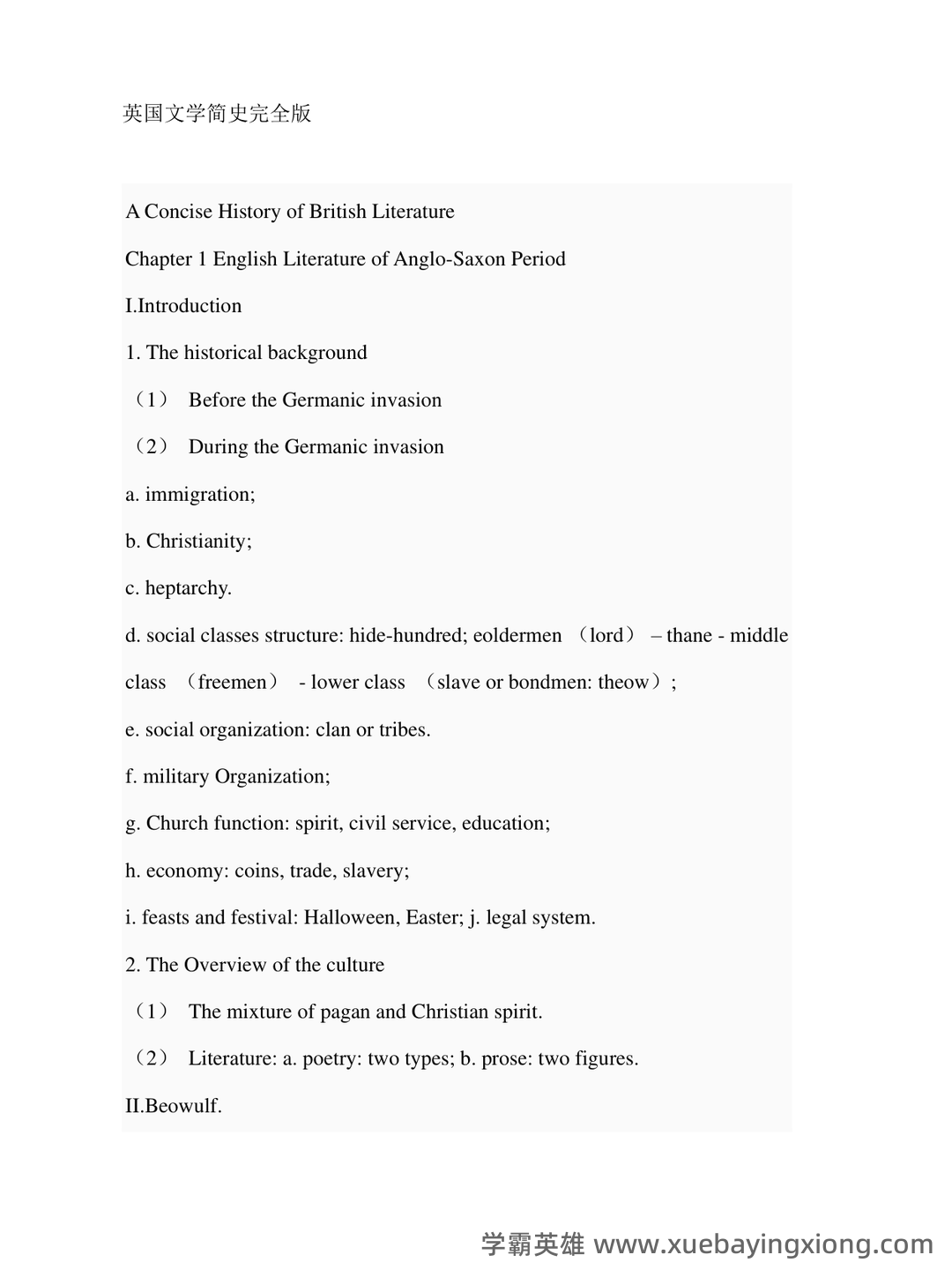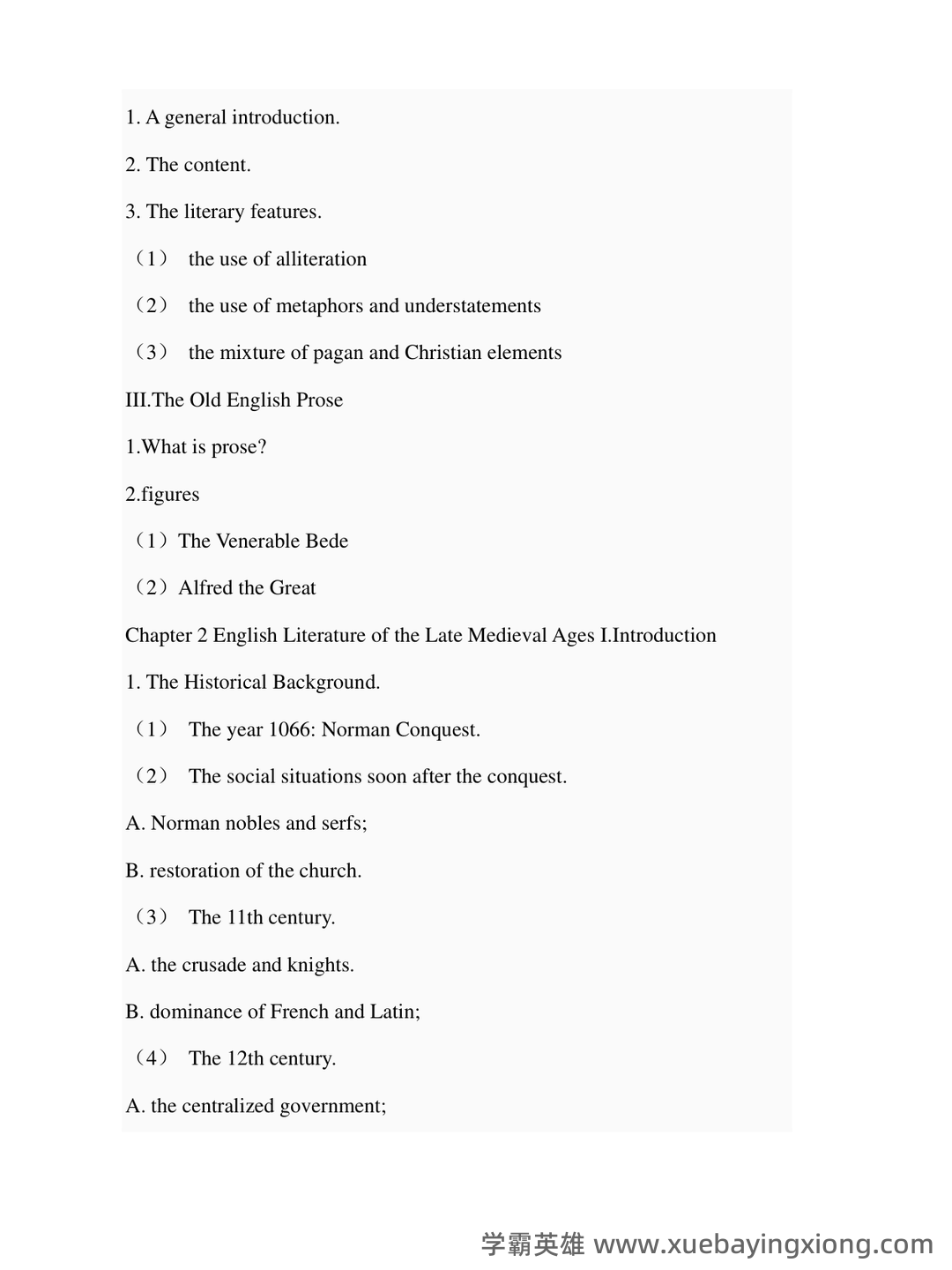
第 1 页 / 共 7 页

第 2 页 / 共 7 页

第 3 页 / 共 7 页
_第1页_学霸英雄_www.xuebayingxiong.com.png)
第 4 页 / 共 7 页
_第2页_学霸英雄_www.xuebayingxiong.com.png)
第 5 页 / 共 7 页
_第1页_学霸英雄_www.xuebayingxiong.com.png)
第 6 页 / 共 7 页
_第2页_学霸英雄_www.xuebayingxiong.com.png)
第 7 页 / 共 7 页
英国文学简史术语解释总结(英文)整理版
British Literature: A Glossary of Key Terms Exploring the vast landscape of British literature can feel a little daunting at first. It’s packed with names, movements, and stylistic choices that often seem impenetrable. But don’t worry – a solid understanding of key terms can unlock a whole new level of appreciation. This glossary aims to distill the core concepts presented in works like “British Literature: A Concise History” (referenced as “British Literature: A Concise History” hereafter) and resources focused on “British Literature: A Concise History terminology.” Firstly, let’s tackle the concept of “Romanticism.” Originating in the late 18th and early 19th centuries, Romanticism reacted against the Enlightenment's emphasis on reason and logic. It prioritized emotion, imagination, and the individual experience – a reaction largely fueled by artists like Wordsworth, Coleridge, and Byron, who celebrated nature and the sublime. The movement valued intuition over systematic thought. Then there’s “Victorian Literature,” dominating the latter half of the 19th century. This era, named after Queen Victoria, was marked by rapid industrialization, social change, and a growing sense of moral questioning. Think Dickens, Brontë sisters, and Tennyson – writers grappling with themes of class, poverty, and the impact of the burgeoning industrial revolution. Moving into the 20th century, "Modernism" arose as a response to the disillusionment following World War I. Characterized by experimentation in form, stream-of-consciousness narratives, and a rejection of traditional values, authors like Joyce, Eliot, and Woolf pushed the boundaries of literary expression. It wasn’t simply a style; it was a fundamental shift in how writers approached storytelling. Finally, "Post-Modernism" built upon Modernism, questioning narratives entirely. This period saw a further fragmentation of literary conventions and a focus on subjectivity and irony. Essentially, it dismantled many of the rules that Modernism had established, leaving space for even greater experimentation. Understanding these core terms—Romanticism, Victorian Literature, Modernism, and Post-Modernism—is fundamental to navigating the rich and complex history of British literature.
展开
英国文学简史
2025-07-31
19次阅读